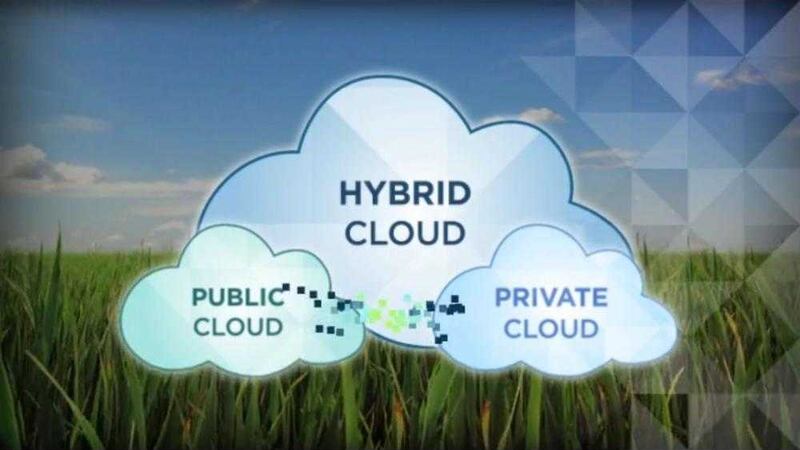THE Hybrid Cloud is a cloud computing environment which uses a mix of on-premises, private cloud and third-party, public cloud, services which interacts seamlessly, allowing workloads to move between private and public clouds as computing needs require. Hybrid clouds give businesses greater flexibility and more data deployment options as well as cost savings.
Many see Hybrid Cloud as a real game changer. A study by Rackspace, and independent technology market research specialist, Vanson Bourne, found that 60 per cent of their respondents had moved or are considering moving to a Hybrid Cloud platform due to the limitations of operating in either a private or public cloud environment.
Hybrid cloud is particularly valuable for dynamic or highly changeable workloads. For example, a transactional order entry system that experiences significant demand spikes around the holiday season is a good hybrid cloud candidate. The application can run in private cloud environment, but use the public cloud to access additional computing resources when computing demands spike, through cloud bursting.
Hybrid cloud benefits are easily quantifiable. According to research, by connecting dedicated or on-premises resources to cloud components, businesses can see an average reduction in their overall IT costs of around 17 per cent.
By leveraging these benefits your business can reduce overall total cost of ownership and improve cost efficiency, by more closely matching your cost pattern to your revenue/demand pattern.
By combining dedicated and cloud resources, businesses can address security and compliance concerns as well. The security of customer transactions and personal information is always of prime importance for any business. Previously, adhering to strict Payment Card Industry (PCI) requirements meant running any applications that take payments from customers on isolated dedicated hardware, and keeping well away from the cloud.
But not any more. With Hybrid Cloud businesses can place their secure customer data on a dedicated server, and combine the high performance and scalability of the cloud to allow them to conduct business and transact payments online all within one seamless, agile and secure environment.
Making the move to Hybrid Cloud could be one of the biggest steps a business can take to future proofing its IT systems whilst ensuring it remains at the forefront of innovation. It can give your business access to vast public cloud resources, the ability to test new capabilities and technologies swiftly, and the chance to get to market faster without huge upfront investment. That’s a pretty compelling set of attractive business advantages.
:: Eric Carson is director of Rainbow Communications and can be contacted via www.rainbowcomms. com. Rainbow Communications can also be followed on Twitter - @ Rainbow_Comms.








